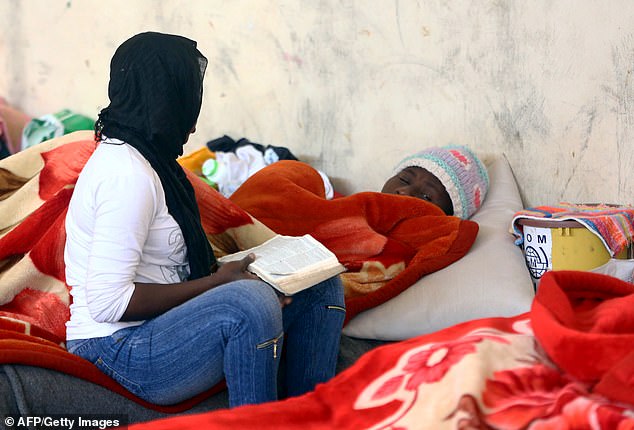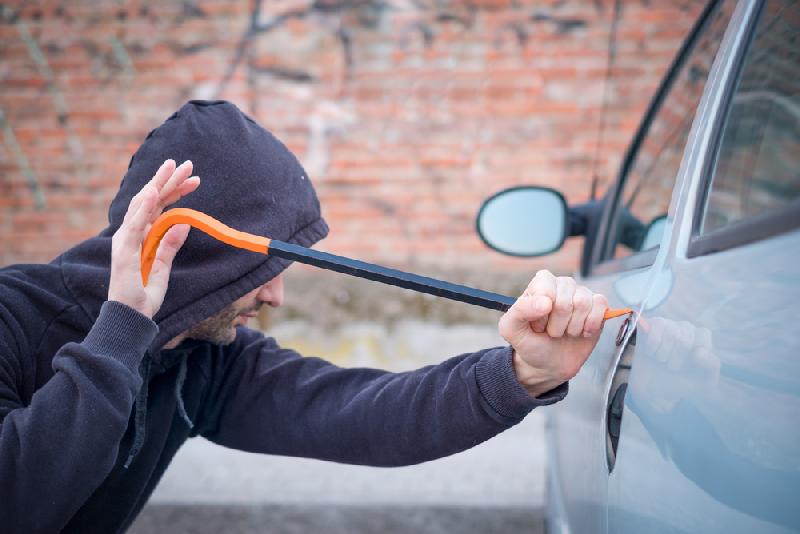
*Lord have mercy! According to a report from the Women’s Refugee Center (WRC), what’s happening to African migrants is absolutely INHUMANE and HORRIBLE and needs looked into immediately.
?Our findings are deeply disturbing,? said Dr. Sarah Chynoweth, sexual violence project director and consultant to WRC, who led the research. ?Sexual violence against female and male refugees and migrants appears to be widespread along the migration route, particularly in Libya.”

Here’s the WRC’s FULL report:
GENEVA, Switzerland ? The Women’s Refugee Commission (WRC) today released the second in a series of groundbreaking studies looking into sexual violence against men and boys affected by conflict.
The report launched today, ??More Than One Million Pains?: Sexual Violence Against Men and Boys on the Central Mediterranean Route to Italy,? explores one of the most dangerous migration passageways in the world and the nature and characteristics of sexual violence perpetrated against men and boys along this route and when they reach Italy.
The first report in this series, ??It?s Happening to Our Men as Well?: Sexual Violence Against Rohingya Men and Boys,? was launched in New York last fall and revealed new data suggesting that the Myanmar Armed Forces targeted Rohingya men and boys for sexual violence as part of its unfettered assault on the Rohingya community in 2017.
?WRC has undertaken this research looking into sexual violence against refugee men and boys so that we can identify the gaps in protection and services for this population ? which have not been well documented ? and to get a better understanding of how it intersects with violence against refugee women and girls,? said Joan Timoney, WRC?s senior director of advocacy and external relations. ?We are also working to ensure that efforts to address male survivors complement and reinforce services for women and girls.?
The ?More Than One Million Pains? report shows that sexual violence against all migrants and refugees ? women, men, girls, boys, and LGBTQI+ persons ? appears widespread along the route and that sexual victimization is often not a one-off event. Refugees and migrants are exposed to sexual violence throughout the course of their journey from fleeing home, during the crossing of the Sahel, to being held in Libya, where they face harrowing conditions, and even onto Italy ? for the few that make it that far ? where for some the cycle of violence continues. The study also suggests that some boys, young men, and LGBTQI persons are being sexually exploited in Italy, as are numerous women and girls.
Field research for ?More Than One Million Pains? took place in October 2018 in Rome and Sicily and included discussions with 52 refugees and migrants and 73 humanitarian personnel, service providers, and guardians. The study was conducted against the background of measures the European Union (EU) and its member states, particularly Italy, have enacted to make it harder for refugees and migrants to safely reach Europe.
?Our findings are deeply disturbing,? said Dr. Sarah Chynoweth, sexual violence project director and consultant to WRC, who led the research. ?Sexual violence against female and male refugees and migrants appears to be widespread along the migration route, particularly in Libya, where profoundly cruel and brutal sexual violence and torture are perpetrated in official detention centers and clandestine prisons, during random stops and checkpoints, and in the context of forced labor and enslavement. The fact that refugees and migrants crossing the Mediterranean are intercepted and forced back into this violence is untenable.?
The study found that sexual violence perpetrated against migrants and refugees along the Mediterranean route includes sexual torture, genital violence and castration, and forcing men and boys to rape others ? including family members and corpses ? as well as lethal sexual violence. The study also found that a handful of local organizations are providing comprehensive, good quality services for survivors of sexual violence in Italy, although the needs still far outweigh the service availability.
?More than One Million Pains? also includes recommendations to the EU and member states, to Italian authorities, to the United Nations High Commissioner for Refugees, UNICEF, and other international humanitarian actors, to services providers, and to donors. The summary and full report are available at https://wrc.ms/onemillionpains.
source: WRC



